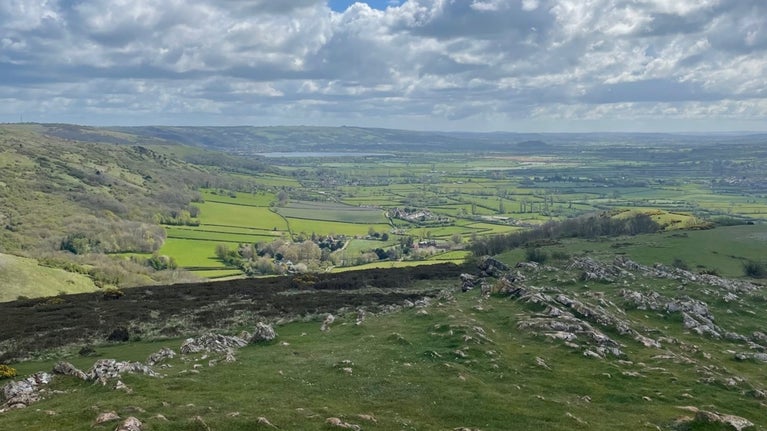Protecting adders on the Mendips
- Published:
- 14 February 2025

The Mendip Hills are one of the last UK strongholds for the European adder. Find out what we're doing to protect this rare species and how you can help.
A species under threat
Whilst adders can be found widely across the UK, a dramatically declining population in recent years has sparked a conservation concern. This is largely due to habitat loss and fragmentation.
While adders have a wide range across the UK, recent declines, particularly in central England, have made them a major conservation concern. The largest populations in Somerset can be found on Exmoor and the Mendip Hills, with smaller populations on the Quantock Hills. Worryingly, 90% of known sites have populations of 10 or fewer adults.
Adders are protected in the UK under the Wildlife and Countryside Act 1981 and are listed as a Priority Species under the UK Post-2010 Biodiversity Framework. They are also recognized as a threatened species under Section 41 of the Natural Environment and Rural Communities Act (2006).
Arty Adders: a creative conservation campaign
To raise awareness and encourage conservation efforts, we've created vibrant, hand-painted wooden adders, co-designed by participants from the Mendip Hills Nature Connections wellbeing programme and National Trust volunteers.
This unique initiative brings together nine organisations dedicated to protecting over 3000 acres of precious habitat, highlighting the challenges faced by the European Adder. This includes sites in the Mendip National Nature Reserve managed by the National Trust, Somerset Wildlife Trust, Avon Wildlife Trust, Butterfly Conservation and Mendip Hills National Landscape.
These colourful sculptures are strategically placed across more than 10 nature reserves and each adder features a QR code that visitors can scan to learn more about these fascinating reptiles and how to protect them. They can be found at these sites:
• Crook Peak
• Dolebury Warren
• Hellenge Hill
• Draycott Sleights
• Ubley Warren
• Blackmoor
• Deer Leap
The Arty Adders will be on display throughout spring, coinciding with the main breeding season. Share your photos of these vibrant snakes on social media with the hashtag #ArtyAdders

Spring: a critical season for adders
Spring is a crucial period for adders as they emerge from hibernation to bask in the sun, which is essential for their survival and mating success. During this time, adders need to warm their bodies to be able to reproduce and move through the landscape to find a mate. Disturbance during this sensitive period can hugely impact their ability to breed and thrive.
How you can help
- Stay on paths: Protect adder habitats by sticking to designated trails. This minimises habitat disruption and ensures adders have safe spaces to bask.
- Keep dogs on leads: Prevent disturbance and potential harm to adders by keeping dogs under control. Uncontrolled dogs can scare or harm adders, especially during their critical basking season.
- Respect basking areas: Avoid entering areas where adders bask. These spots are vital for their ability to regulate body temperature and reproduce successfully.
- Leave adders alone: If you see an adder, admire it from a distance and leave it undisturbed. This helps ensure their safety and well-being.

Things to see and do in the Mendip Hills
Explore the Mendip Hills and the wildlife within. Visit Ebbor Gorge, the perfect place to bring the whole family, or head to Burrow Mump for scenic views across Somerset.

Our work in the Mendip Hills
From dry-stone walling to cattle grazing, a lot of important environmental work goes into the management of the Mendip Hills. Find out more about what our rangers and volunteers do.